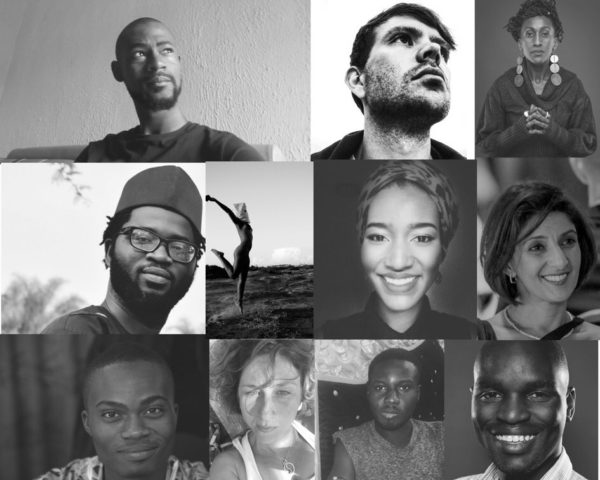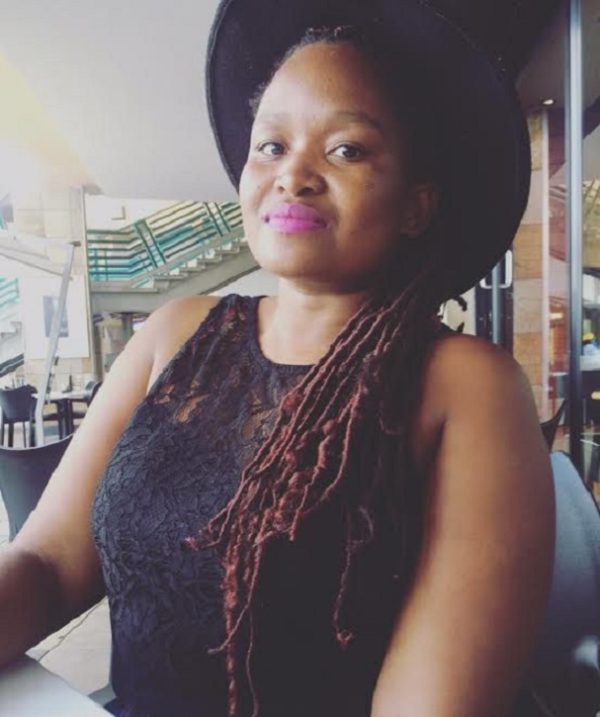
Gaamangwe Mogami, editor of Africa in Dialogue, has curated interviews with the twelve writers and photographers shortlisted for the 2017 Gerald Kraak Award.
The interviews—with Farah Ahamed, Beyers de Vos, Sindiswa Busuku-Mathese, Dilman Dila, Justin Dingwall, Amatesiro Dore, Tania Haberland, Julia Hango, Dean Hutton, Otosirieze Obi-Young, Olakunle Ologunro, Ayodele Sogunro and Sarah Waiswa—are collected in an e-book titled Africa in Dialogue Interviews Gerald Kraak Award 2017 Shortlist.
DOWNLOAD: Africa in Dialogue Interviews Gerald Kraak Award 2017 Shortlist

Gaamangwe Joy Mogami, who is a Motswana, is a poet, playwright and screenwriter, and is one of the continent’s foremost human rights and gender activists. We published her poetry early this year. Here is her Introduction to the e-book.
*
To read is to have all your three eyes turned upside down, onto themselves, outwards to the world before and beneath you. It is to pull the veil and to discover the whole world: the one you know and the one you didn’t know existed out there and inside you. Reading Pride and Prejudice, the Gerald Kraak Anthology: African Perspectives on Gender, Social Justice and Sexuality was a mash-up of all my eyes turned up and down, sideways and at some point almost out of my eye sockets. It was a jarring experience, mostly because I didn’t know how much I yearned to read these different and important perspectives on gender, sexuality and human rights. And when I went further and extended my experience of my reading, to engaging in dialogues with the writers of these incredibly, powerful stories, I entered an entirely new space of existence.
The thing of discussing and deciphering the meanings and ideologies of gender, sexuality and human rights is much like attempting to dissect and understand a magic spell. It is half of a whole experience because, first of all, to describe the spark that transmutes thoughts into visual and emotion-evoking imagery in stories is an elusive endeavor. We are yet to crack open the spell of where and how and why stories come to and through storytellers.
Second, gender and sexuality, social justice and human rights exists in many intersections, spectrums and understandings. The perspectives shared here are as vast and diverse as the seconds of the day. Our meditations traveled everywhere: the danger of homophobia and the origin of patriarchy and misogyny with Otosirieze; the invincibility of the clitoris and commercialized versions of sexuality with Tania; the homophobic bill and commodification of maternal health with Dilman; social advocacy of the human rights of people living with albinism with Sarah; how the system and communities fails LGBTI individuals and the lack of access to education with Beyers, grief and the gravity of the inhuman moments in our histories with Sindiswa; collective and domestic violence towards homosexual individuals with Olakunle; deeply entrenched shame towards nudity and acts of pleasure with Julia; the danger of anti-gay laws and the need for policy change with Ayodele; active resistance towards negative social attitudes of basic human rights with Farah, and queer narratives and the intersection of sexuality and religion with Amatesiro. Together, we discovered there is much to learn, relearn and unlearn about gender, sexuality and human rights. We must be proactive about creating new narratives and meanings of ourselves and our humanity.
This is the third e-book of interviews with finalists for a major prize that Africa in Dialogue has offered us all, following those of the Brunel Prize and the Caine Prize. And we are grateful for these gems. We will be republishing some of the interviews.
DOWNLOAD: Africa in Dialogue Interviews Gerald Kraak Award 2017 Shortlist









COMMENTS -
Reader Interactions